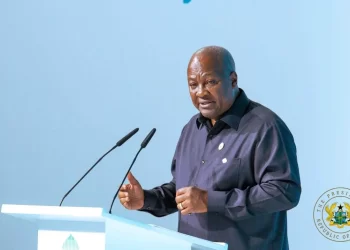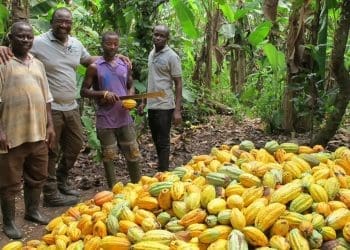The Ghana Gold Board (GoldBod) has begun nationwide enforcement of the mandatory use of GoldBod receipts by all licensed gold buyers.
This move comes after several postponements and a grace period that allowed traders to regularise their operations and secure the licences needed to stay in business.
In a statement issued on Monday, August 18, 2025, GoldBod stressed that the issuance of receipts is now a compulsory requirement for all transactions involving licensed aggregators, self-financed aggregators, as well as Tier 1 and Tier 2 buyers. The measure, it explained, is designed to enhance transparency and strengthen regulation within Ghana’s gold trade.
To drive compliance, the Board has deployed a task force and field inspectors nationwide. Licensed buyers must make their receipt booklets available for inspection and fully cooperate with the teams.
GoldBod further urged small-scale miners and gold traders to demand official receipts for every transaction.
It cautioned that “failure by licensed buyers to issue receipts constitutes a serious offence, attracting sanctions that may include suspension or revocation of licences.”
The Board also encouraged buyers who need support in acquiring receipt booklets to contact its License and Regulatory Unit through dedicated hotlines.
Earlier, the Chief Executive Officer (CEO) of the Ghana Gold Board (GoldBod), Sammy Gyamfi, said Ghana is set to introduce a national gold traceability system by 2026 in a landmark initiative to formalise small-scale mining and crack down on illegal gold trade.
The upcoming system would enable Ghana to track the origin and movement of gold across the supply chain, from mine to export.
He said “We started mining gold since the colonial days, and yet, to date, we don’t have any traceability system so we can identify our gold when it is exported or from which mine a particular gold is coming from.”
The absence of a gold traceability framework has long undermined the credibility and revenue potential of Ghana’s gold exports, especially those originating from the small-scale sector.
While large-scale mining companies often comply with international sourcing standards, Ghana’s informal mining ecosystem has remained opaque and vulnerable to smuggling, money laundering, and environmental abuse.
Sammy Gyamfi stressed that introducing traceability will not only enhance government oversight but also ensure that Ghana receives fair value for its gold resources.












